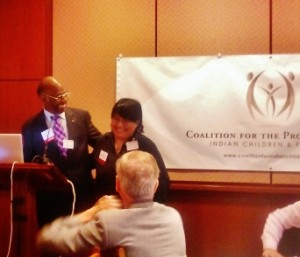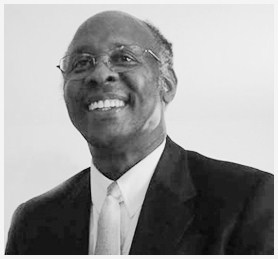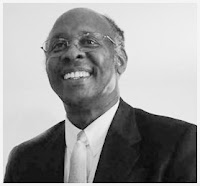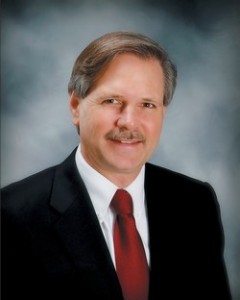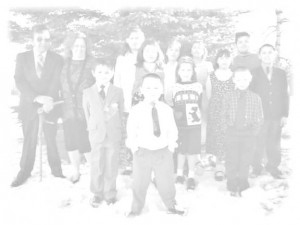 On October 27th, 2011, I walked through the drizzle, past Union Station and up Massachusetts Avenue to find the offices of the Congressional Coalition on Adoption Institute.
On October 27th, 2011, I walked through the drizzle, past Union Station and up Massachusetts Avenue to find the offices of the Congressional Coalition on Adoption Institute.
I was in DC to speak to various congressional staff about harms caused by the Indian Child Welfare Act and to invite people to the ‘Teach-In’ our organization was holding on Friday, Oct. 28th in the Senate Committee on Indian Affairs hearing room. I hoped that the CCAI would be interested because ICWA has been hurting children and adoptive families across the country and at some point, there needed to be an honest discussion about it.
Finding the office in a rowhouse a couple blocks from the Senate buildings, I climbed the steps and went in. Two women quietly listened while I shared with a third the purpose of my visit. Across America, children who had never been near a reservation nor involved in tribal community – including multi-racial children with extremely minimal blood quantum – have been removed from homes they know and love and placed with strangers chosen by tribal social services.
When I was finished talking, the woman, who had been listening attentively, told me she had just finished an ICWA story for NPR, and that she supported the tribal position. I initially thought she meant she had been writer for it, but now wonder if she simply meant she had been following it. At any rate, she was kind, and I was able to tell her some of the flip side and invite her to our Teach-in. She was polite and accepted the folder of letters from hurting families. She did not come to the Teach-in.
I had heard small bits about the NPR series from two Congressional offices the day before, and over the next few days a couple of our members also notified me about it. Two of my brothers even sent me links to the article. One friend wrote to me on Facebook that the NPR series had her yelling at the radio. With so much attention to the series, a rebuttal is necessary.
As the birth mother of five enrolled children, the legal custodian of three others, the legal adoptive mother of one and emotionally adopted mother of another, I can tell you what NPR did NOT report.
First, not ALL enrollable persons want to live on the reservation or be under tribal jurisdiction.
Persons of tribal heritage are no different than any other human. Each individual has their own mind, wants and needs. Blood Quantum has nothing to do with an individuals decision to participate in reservation life: some persons of 100% heritage choose to live separate from the tribe while some who have very little heritage choose to identify totally with the tribe. The notion that there is some hereditary tie – an inherent gene binding children to a single cultural tradition or geographic location is not factual.
According to the 2000 Census –
• There are 4,119,301 people claiming to have American Indians and Alaska Native ancestry in the United States and 562 federally funded Tribes. This population includes individuals with too little blood quantum to be tribal members as well as individuals who are members of state recognized tribes.
• Approximately 75% live outside the reservation, with about 55% living in metropolitan areas. Only about 25% live on the reservations.
• As much as 45% of reservation residents are non-Indian. (On some reservations, it is reported that as much as 80% might be non-Indian.)
• On 30% of the reservations, the number of non-members is equal to or greater than the number of tribal members.
• The Montana Supreme Court, in Skillen v. Menz, wrote, “Interracial marriages are a fact of life, and, as with other marriages, so are interracial divorces and custody disputes over the children of those marriages.”
The above facts are the reason we are having troubles with the Indian Child Welfare Act.
1. Most people of Indian heritage choose to live and raise their families outside of the reservation system.
2. Most people of Indian heritage have more than one heritage – meaning extended family from other heritages as well.
Now, while the 2010 Census indicates that the reservation populations may have increased over the last ten years (The Seattle Times, May 6, 2011, asserts this is due to “successful casinos and other business ventures, including commercial fishing operations, economic opportunity…”) the fact remains that most enrollable children live off the reservation and MOST enrollable children have non-enrolled family members.
So while it is simple to interview only people who live on South Dakota reservations and enjoy the lifestyle found there – those who were interviewed represent only a fraction of all tribal members, reservation residents, and enrollable citizens. Further, South Dakota itself and the reservations within its boundaries don’t represent all 50 states or 562 tribes.
Was NPR providing one-sided coverage?
Having taken a full year to do their investigation, why didn’t NPR interview many of the 75% of enrollable citizens who have chosen to live off the reservation? Many, like my husband, chose to leave the reservation for good cause and raise their children differently.
While some seek economic advantages, poverty itself isn’t a bad thing or the only reason for leaving. Some of our most content years as a family were living on a couple acres in the middle of a corn field, raising goats and chickens. But crime, hopelessness, and child neglect – which is not the same as poverty – is a bad thing. Many people choose to raise their children in a safer setting.
NPR attempts to discount the impact neglect has on children by stating, “…in South Dakota very few are taken because they’ve been physically or sexually abused. Most are taken under a far more subjective set of circumstances. The state says the parents are neglectful.”
But neglect is a valid issue of concern for children of all heritages. While some readers have come to the defense of the mother in the NPR story whose children had been left alone, the fact is that there was evidence of frequent neglect. Quote from the story; “The children, however, had a plan for situations like this. If they were ever left alone or if someone was drinking at home, they were always instructed to go across the street, to their grandma’s. If she wasn’t there, the back door would be left unlocked.”
In other words – this had happened before, and often enough that the kids needed to have a plan. NPR brushes this off as if it is a non-issue that the kids would need to seek refuge from their home. NPR, it is NOT a non-issue. What is being described IS a dangerous situation. The children were left alone. No, this does not happen in every home in America. The fact that many residents on various reservations gloss over and treat such things as a non-issue is testimony to the severity of the problem – and yes, the need for intervention.
There seems to be an inconsistency with people unfamiliar with reservations who, on the one hand, decry poverty on reservations while on the other hand maintain a belief that Indian people – and in particular, children – prefer to live in conditions most other families find dangerous. What is particularly disconcerting about this assumption is the underlying idea that Indian people don’t mind living in crime ridden, dirty circumstances.
What is most upsetting about this series, having watched so many children in our extended family suffer from neglect and abuse, is the implication that most children are removed for no cause. The biggest grief my husband and I have had over the years was that more children weren’t removed sooner. I have chased a drunk off a 10-year-old girl, stood at the casket of a 2-year-old who had been beaten to death, stood in the closet where a beautiful 16-year-old had just hanged herself, begged a hospital not to release a 15-yr-old back to the streets with her newborn daughter, and sat in shock when I was called a few weeks later by a relative hoping that I had that same baby, because the 15-year-old had “lost” her the night before while drinking.
One Minneapolis social worker once told me that the only reason my husband’s grandchildren weren’t removed from their parents sooner was because of the Indian Child Welfare Act. He said that had they been of any other heritage, they would have been protected much sooner.
In one family story that NPR highlighted, the author takes the family’s word that there had never been any prescription drug abuse –which is rampant on many reservations – and thus no reason for the children to have been taken. I don’t know if there was or wasn’t, but I wouldn’t blame social services for being cautious. Many in our extended family heavily abuse prescription drugs. I have raised four extra children in my home, on top of my five, because of the neglect and abuse they suffered. We were asked to take several more because we were considered one of the few safe homes in the extended family. Unfortunately, when we couldn’t take in any more children, that didn’t mean they were going to find another safe home. That’s not how ICWA works. When a safe relative’s home can’t be found, less safe homes are considered. Indian kids are not getting the protection that other children get.
Severe drug and alcohol abuse is rampant on many reservations. Let’s stop pretending. By glossing over reality, helpless children are being subjected to further, extended abuse and neglect. It is not racist to remove children from abusive and neglectful homes and place them somewhere safe and nurturing.
THIS IS WHY we began this Petition:
– We need help bringing attention to this issue. Indian Kids need protection EQUAL to any other child – PLEASE sign this White House Petition – 25,000 signatures will prompt a White House review of the issue. http://wh.gov/bvZ
Read between NPR’s lines. There appears an attempt to paint the picture of a helpless group of people with almost every sentence. Take for instance the statement; “There’s only electricity when it’s possible to pay the bill” – as if that wasn’t true for every family in the United States. What I am saying is, 1) Everyone in America needs to pay their bill in order to keep the lights on, and 2) Electricity is available on this reservation. The sentence is worded to give the impression that utilities are woefully intermittent in South Dakota.
In defense of one of the parents in trouble, NPR stated,
“…tribal courts can be over-run, under funded and operated only part time.” That may be true, but it is tribal government – under the claim of sovereignty – that is responsible for making tribal courts work, not federal or state government.
As further evidence of the series being one-sided, the article points out that “…two South Dakota judges, two lawyers and a dozen tribal advocates told NPR that state law doesn’t apply. Federal law says tribes are sovereign. The experts say a state official can’t drive off with an Indian child from Crow Creek any more than a Crow Creek official could drive off with a child from Rapid City.” (Tell this to the birth father in Texas whose child was taken by tribal officials from Arizona three years ago.)
So…NPR found less than two dozen or so officials in South Dakota who think that placing a child of heritage into a non-tribal home is illegal. Obviously, there are many more in SD who view it differently. Thankfully, there are some who realize that the best interest of children is far more important than playing politics.
NPR even quoted, then discounted, a tribal ICWA worker stating,
“I get along real good with the state and I have a good rapport with them…I’m satisfied.”
NPR also brings up the memories of the old border school system, as if it has relevance to the current need to protect children. Yes, taking children years ago for no good cause from the families they knew and loved was wrong. And it is just as wrong to do it today – taking children from homes they know and love and forcing them to live with strangers on reservations.
It is also time to stop painting every attempt at Child Protection as something malicious. Even the boarding school system wasn’t inherently malicious. David Tickerhoof, who NPR identified as the current pastor at Saint Paul’s Church, is quoted in the article saying,
“There had to be a pretty stringent discipline system…The goal wasn’t to make them non-Indian; the effort was to really help them stand as an equal in the job environment and to do that they had to be able to communicate in the dominant society.”
Further, some parents wanted the boarding schools. The NPR article itself relates one story, saying;
“She had been sent away when she was 5-years-old. Her mother couldn’t afford to provide for her or her sister. So, she enrolled them at Saint Paul’s Indian Mission”
The mother enrolled the children. Neither the state nor the mission stole them, yet, the article goes on to intimate that the mission had done something wrong in taking the two children in.
Finally, a NPR statement which I would like to see their documentation for:
“…NPR’s investigation shows that even Native American children who grow up to become foster care success stories, living happy, productive lives, say the loss of their culture and identities leaves a deep hole they spend years trying hopelessly to fill.”
Hopelessly. Meaning – no hope. For years wandering, disabled, half a person… yet, living happy, productive lives. Make up your mind, NPR.
How many people did they interview in order to draw that conclusion? Yes, adoptive children of all heritages have a sense of loss in relation to birth family. A couple of the children I raised felt this as well. It is natural. Yet, we never saw any of the children we raised pine for a heritage, whether it be their Native heritage, or Jewish, German or Irish heritage.
Suffice it to say that every human on earth has nostalgia in their heart to one extent or another, some more than others. People of every heritage have amongst them those who grieve for what was, others who yearn for what might be, and still others who are simply content with what is That’s life. Let’s move on.
Next, there’s the bonus money:
“…according to federal records, if the child has ‘special needs,’ a state can get as much as $12,000,” and “…A decade ago, South Dakota designated all Native American children ‘special needs,’ which means Native American children who are permanently removed from their homes are worth more financially to the state than other children.”
If this is true, it is just plain sick and wrong and needs to be one of the first things the South Dakota legislature changes this next session. I am not saying “maybe.” I am saying CHANGE IT. It is pure racism – plain and simple. Excuse me? Labeling a child as ‘special needs’ just because of their heritage? Nothing could be more degrading and despicable. This is the appalling outcome of the nauseating notion that persons of tribal heritage are somehow different from other people.
Further, if that was truly a factor in the foster care/adoption rate in South Dakota, throw the book at all those responsible and put an end to the sick game.
But while it is quite provocative to point out the money per head that the state gets for the children, NPR totally left out the fact that Tribal government itself gets more money per head for our children. Sometimes, tribal governments need members to be living on the reservation in order for them to receive the funds; other times they are able to use families in their head count of enrolled members whether or not the family lives on the reservation or uses tribal entitlement programs.
According to the “Tribal Complete Count Committee Handbook” published by United States Census 2000, D-3289 (4-99):
“The programs serving tribal residents …which use Federal funding based on population statistics—[include]: Johnson O’Malley, Headstart, Home Energy Assistance, Housing and Urban Development programs, etc…”The Federal government uses census data to allocate funds to tribal, state, and local governments for a wide range of programs.”
According to Jack C. Jackson, Jr., Director of Governmental Affairs, National Congress of American Indians, Statement on the importance of an accurate census to American Indians and Alaska Natives, before the U.S. Commission on Civil Rights, Washington, D.C., Feb. 12, 1999:
“….A significant portion of this federal aid is based on the information collected in the census. Federal programs that distribute aid to American Indians and Alaska Natives based in whole or in part on census data include the Job Training Partnership Act, Grants to Local Education Agencies for Indian Education, Special Programs for the Aging, and Family Violence Prevention and Services.”
According to Administration For Children and Families, (ACF) U.S. Dept of Health and Human Services, May 9, 2007, Child Care Bureau, Office of Family Assistance:
“Tribal Child Counts …For funds that become available in FY 2008, ACF will calculate grant awards based on the number of children under age 13. A Tribe must submit a self-certified Child Count Declaration for children under age 13 (not age 13 and under), in order to receive FY 2008 CCDF funds.”
How much money are we talking about? Billions.
From Indianz.com, “House panel boosts funds for Indian Programs”, Monday, June 11, 2007. Accessed Aug. 30, 2007 –
At a markup on Thursday, the committee approved 5.7 billion for Indian programs at the Interior Department and related agencies, including the Indian Health Service…. The bill “honors our obligations to Native American communities, making investments into better education and healthcare,” the committee said of the overall $27.6 billion package, an increase of 4.3 percent over current levels.”
And that was 2007. Yet NPR quotes a tribal social worker for the Pine Ridge reservation, Juanita Sherick, saying, in reference to State Social Workers,
“They make a living off of our children…”
…while failing to note that she, herself, is also making a living off of enrollable children.
What to do then?
Tribal social worker, Juanita Sherick, is further quoted saying,
“Give the children back to their relatives, because the creator gave those children to those families…Who has any right to take them away from those families?”
I agree with Juanita. The birth families, if they are fit, should have more authority than either government. That is why ICWA is unconstitutional. Tribal government does not own our children. As Juanita said – “give the children back” to their families.
Allow the families, if they are fit, to decide who they want to adopt their children, and what type of lifestyle they want their children to have. We have seen tribal governments fight for children with less than 1-2% heritage – children with absolutely no connection to the reservation. We can think of no other reason for tribal governments to be doing this than for money. Although most everyone will admit that it is wrong to treat children this way, under the ICWA, it is currently legal.
Sherick went on,
“Why send a private agency onto our reservation? [Children’s Home] is not calling us to request permission to come onto the reservation to do these home studies.”
NPR then states,
“Mendoza says her agency would do the work for free. They know the families, they know the homes.”
If it is true tribal agencies are interested in doing contractible work for free, this is a wonderful idea. While in our own family’s case tribal social workers weren’t willing to come and do proper home studies, the willingness of other tribal agencies to do so is wonderful.
The NPR writers add,
“across the state, grandmothers, aunts and uncles, family and tribal members would have cared for Brianna — and hundreds of other Native American children like her. They would have done so for free, keeping them close to their tribes and culture like federal law intended.”
If what NPR states is true – and I pray that it is – I am all for developing a program to do just that. Willing families would, of course, sign statements that they will not apply for or accept any welfare or entitlement funding for these children, whether through the federal or tribal government (which is still federal funds). But…NPR wouldn’t be trying to bluff us with that statement, right? There truly are enough homes willing to take in hundreds of children for free, right?
Now I have a story of my own to tell about an adoptive mother and her little girl. On Saturday, Nov. 19, the mother posted to Facebook,
“It’s nothing short of a miracle that we got her back.”
My Lord! She wrote this EXACTLY A YEAR from when she had first written us on Saturday, Nov. 20 – saying,
“They just took my baby after 3 years…her sobbing is forever etched in my soul.”
The courts had determined that because the little girl had some Indian heritage, ICWA applied and she had to go stay with a family she had knew nothing about.
For five months this mother suffered the loss daily, until April 13th, when they got a call from Social Services to come and get their little girl right away. There was a problem and she had to be moved immediately from the home she had been placed in. It was only supposed to be for a couple days, until Social Services could find another placement, but these parents were just glad to be able to see her and hold her for as long as they were allowed.
They left right away, driving a couple hours to get her. When she saw them, she ran into their arms and said she was ready to go “home” – “Can I go home?” she asked – Adoptive mom wept – but daughter held her tears until after they had left the building, then wept freely. The people she had been with had told there were monsters in the closet who would come eat her if she cried.
Fortunately, she wasn’t physically hurt during the five months. But she was, indeed, emotionally traumatized. She was NOT okay. She had been told her that her adoptive parents were wolves and would eat her, and she reported that she had been locked in a storage shed. She was only three so it’s still hard to say what actually happened, but it is known that things were not well – as evidenced by the emergency request by social services for the adoptive parents to go after her.
Social Services never took her back, and on Friday, Nov. 18, this family finalized the adoption of their little girl after having lost her exactly a year earlier to ICWA. They are now a permanent family.
The point? Let’s start to recognize that the Indian Child Welfare Act does NOT ensure the best interest of every child with heritage – nor protect them. While some families prefer and need to stay together on the reservation, others do not. Let us recognize that we must not be so prejudice as to assume that all children and families want the same things, simply because they have a certain heritage. Even children and families with 100% blood quantum are not always interested in remaining within the reservation system. Let us start to recognize that all citizens of the United States are guaranteed certain rights under the constitution. Let us also recognize that the safety of children, no matter what their heritage, is the first and most important consideration. If there is no safe home amongst relatives, they should not be placed in a relative’s home.
A commenter to the online article, Slandering the Red States, Part I, by John Hinderaker in Media Bias Nov. 6, 2011, wrote; …
“The whole premise of indians being kidnapped and ‘ruined’ because they are placed with white parents is racist to the core. Can you imagine a similar story about white kids that have a black or Latino dark skinned foster parent being robbed of their “cultural heritage”? Racism is racism and the NPR piece is noting but anti-white racism.”
So True.
Please help
FAMILY LETTERS: https://www.caicw.org/familystories.html
ICWA CASE LAW: https://www.caicw.org/caselaw.html
FACEBOOK: http://facebook.com/fbCAICW.org
TWITTER: http://twitter.com/CAICW
– We need help bringing attention to this issue. Indian Kids need protection EQUAL to any other child – PLEASE sign this White House Petition – 25,000 signatures will prompt a White House review of the issue. http://wh.gov/bvZ
 Late Tuesday night, January 1st, 2013, the U.S. Senate unanimously passed S. Res. 628, expressing disappointment over the Russian law banning adoption of children by American citizens.
Late Tuesday night, January 1st, 2013, the U.S. Senate unanimously passed S. Res. 628, expressing disappointment over the Russian law banning adoption of children by American citizens.

